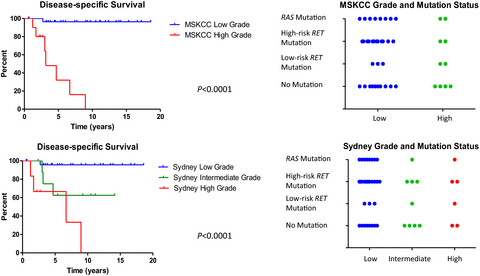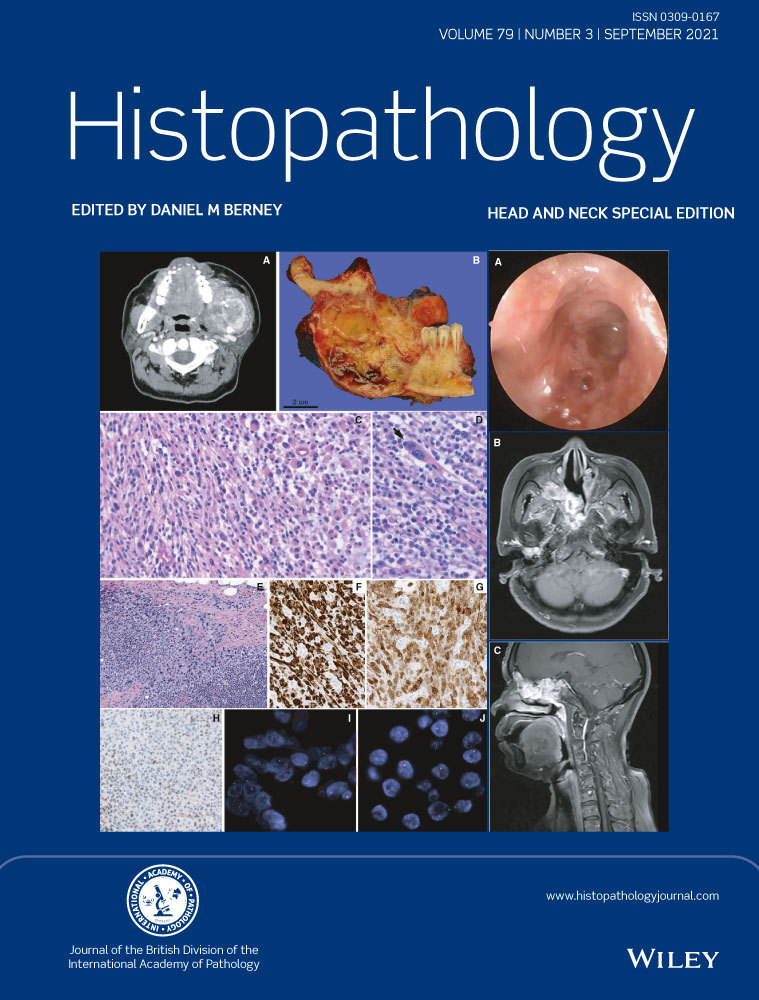Evaluation of grade in a genotyped cohort of sporadic medullary thyroid carcinomas
Abstract
Aims
Tumour grade and RET mutation status, especially the presence of high-risk exon 15 and 16 RET mutations, have been reported to be prognostic in patients with sporadic medullary thyroid carcinoma (MTC). The aims of our study were to evaluate the performance of two recently proposed grading systems and to assess the association between grade and genotype in a cohort of sporadic MTCs.
Methods and results
We identified 44 sporadic MTCs. All available tumour slides were examined, and cases were assigned a grade on the basis of either mitotic count and tumour necrosis, or mitotic count, tumour necrosis, and Ki-67 proliferative index, as described in two recent studies. Additional clinicopathological features and outcome information were obtained from the pathology reports and electronic medical records. The presence of RET and RAS mutations was determined either with direct sequencing or with massively parallel sequencing. Both grading systems were prognostic for progression-free survival and disease-specific survival on univariate analysis. There was no correlation between grade and mutation status. Specifically, neither RET nor high-risk RET mutations were enriched in high-grade tumours, as assessed by either grading scheme.
Conclusion
Our findings suggest that grade is not correlated with RET/RAS mutation status, indicating that grade and genotype may give independent prognostic information.
Graphical Abstract
Conflicts of interest
N. Chau receives research funding from BMS, FSK, Merck, and Roche, and is a consultant for Bayer, BMS, Eisai, Merck, and Roche. M. Capelletti is currently employed at Caris Life Sciences. All other authors have no conflicts of interest to report.





